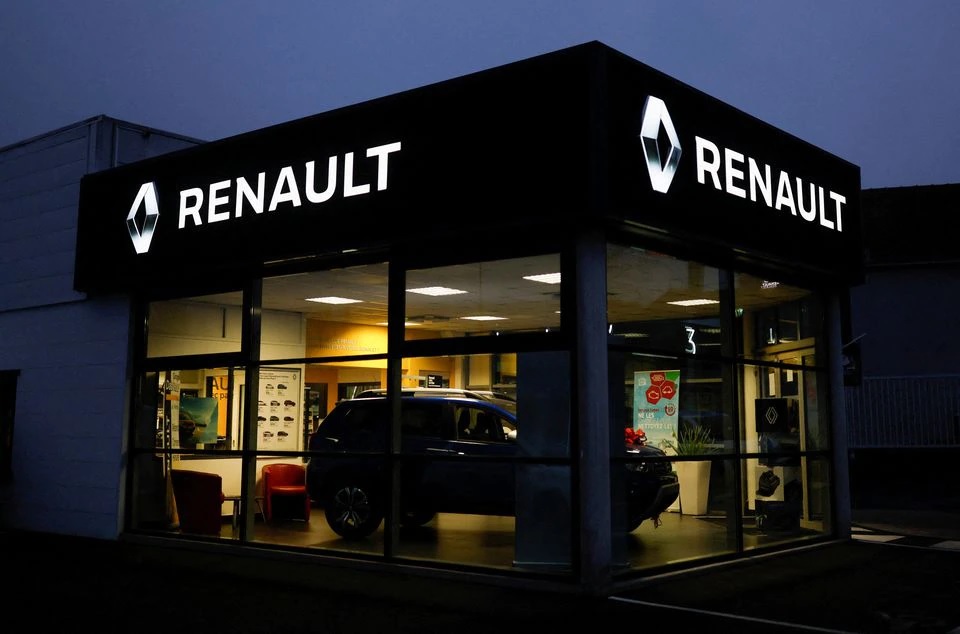PARIS, April 22 (Reuters) – French carmaker Renault (RENA.PA) said on Friday all options were on the table for separating its electric vehicle (EV) business, including a possible public listing in the second half of 2023.
Thierry Piéton, Renault’s finance chief, said any plans were subject to approval from its alliance partner Nissan (7201.T), but made clear the Japanese carmaker was “in the loop” as Ranault weighs up its options.
Renault has been pushing ahead with plans to split its electric vehicle and combustion engine businesses as it seeks to catch up with rivals such as Tesla (TSLA.O) and Volkswagen (VOWG_p.DE) in the race to cleaner driving.
Ford (F.N) said last month it would run its EV business separately from its legacy combustion engine operations.
The news came as Renault posted better-than-expected revenue for the first quarter, as higher prices and rising electric vehicle sales largely offset the impact of the war in Ukraine and an ongoing global shortage of semiconductors.
Renault shares briefly spiked as much as 5% after Bloomberg reported that Renault may consider lowering its stake in Nissan as part of its plans to separate its EV business.
Renault declined to comment.
When asked about the report, a Nissan spokesperson said “we do not comment on speculation.”
In early afternoon Paris trading, Renault shares were up 1.4%.
The group, which also makes Dacia and Lada brand vehicles, said its revenue fell by 2.7% from a year earlier to 9.75 billion euros ($10.6 billion). Analysts had expected revenue of around 9.61 billion euros, according to Refinitiv estimates.
Excluding Avtovaz and Renault Russia, revenue was down 1.1% at 8.9 billion euros.
Last month, Renault said it would suspend operations at its plant in Moscow while it assesses options on its majority stake in Avtovaz (AVAZI_p.MM), Russia’s No. 1 carmaker.
On Friday, the French carmaker said talks on the future of Russian operations were “ongoing and making progress.”
The drop in first-quarter revenue followed a 17% decline of vehicle sales to 552,000 vehicles, Renault’s lowest quarterly total since the depths of the global financial crisis in 2009.
The company said sales of fully-electric and hybrid vehicles rose 13% and accounted for 36% of the total. Prices were up 5.6% from the first quarter of 2021 as the group pursues sales of more profitable cars.
In a client note, J.P. Morgan analysts described this as a “strong quarter.”
“Renault continues to deliver on its pricing and model rationalization policy and today’s result comes in as another step in the right direction,” they wrote.
Renault confirmed its financial outlook laid out in March for a 2022 operating margin of around 3% and said it would give a detailed update on its targets and strategy later this year.
The global shortage of semiconductors, used in everything from brake sensors to entertainment systems, will cut Renault’s planned car production by 300,000 vehicles in 2022, mostly in the first half of the year, the company said.
Renault’s order book at the end of March was at a 15-year high of 3.9 months of sales.
($1 = 0.9223 euros)











